30+ Sample Schedule
-
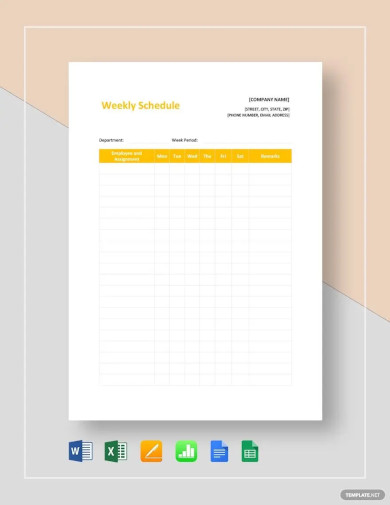
Weekly-Schedule
download now -
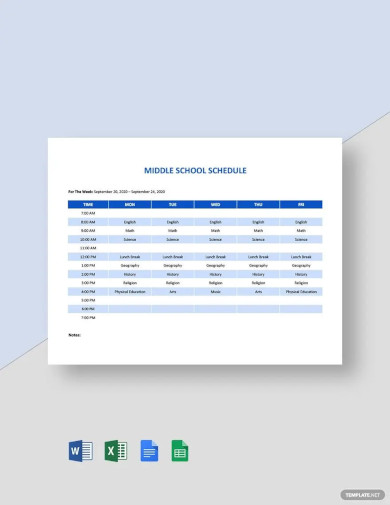
Middle School Schedule
download now -
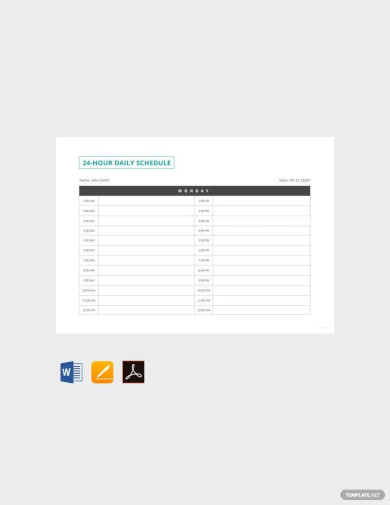
24 Hour Daily Schedule
download now -
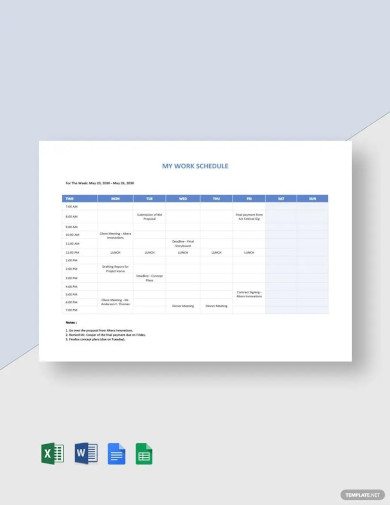
Freelance Work Schedule
download now -
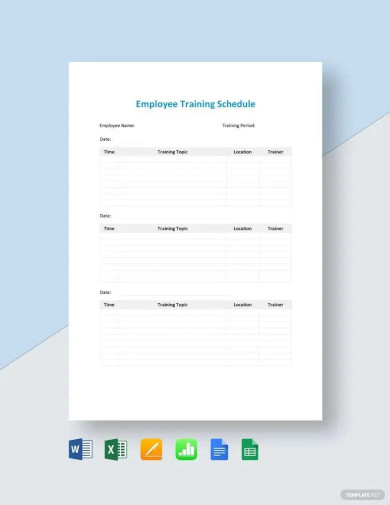
Employee Training Schedule
download now -
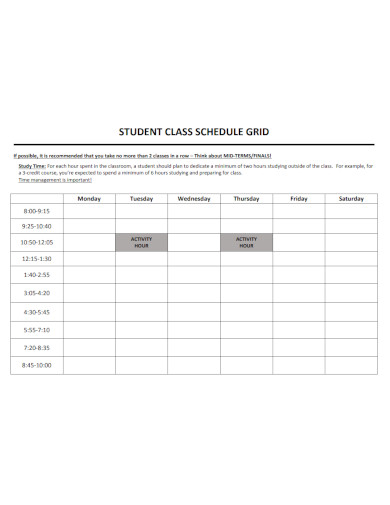
Student Class Schedule
download now -
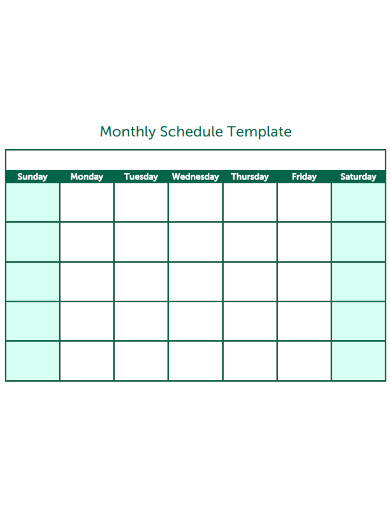
Monthly Schedule
download now -
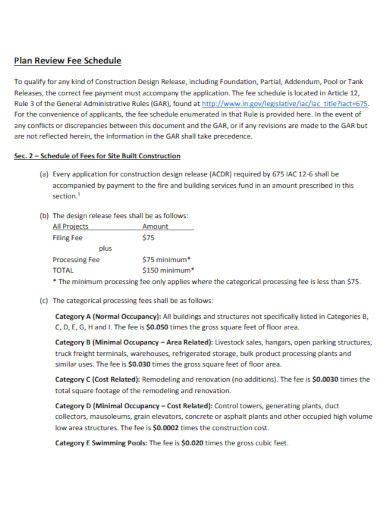
Plan Review Fee Schedule
download now -
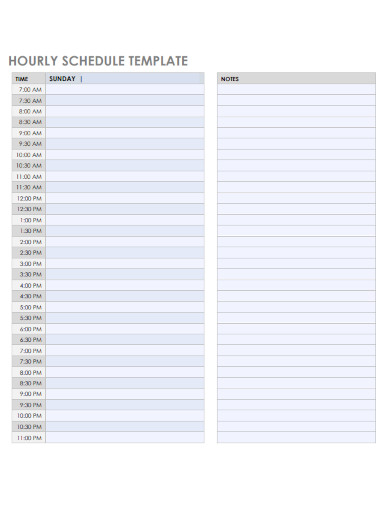
Hourly Schedule
download now -
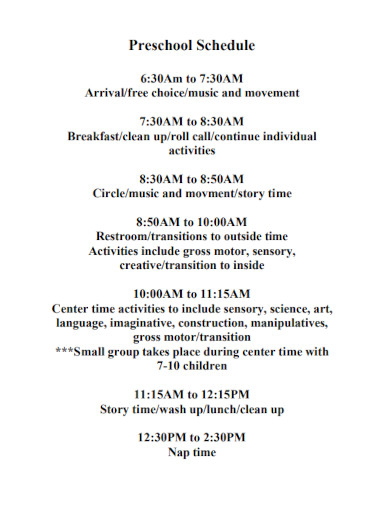
Preschool Schedule
download now -
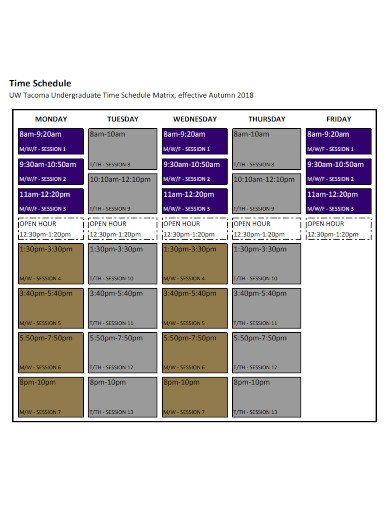
Time Schedule
download now -

Schedule Planning Chart
download now -
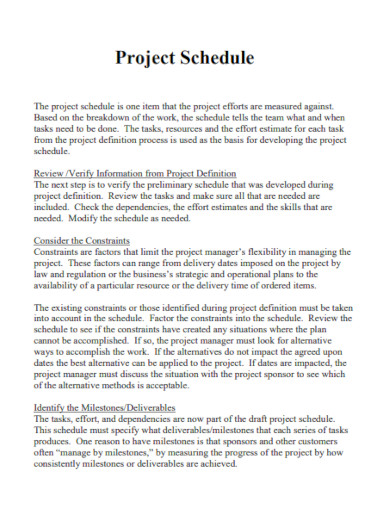
Project Schedule
download now -
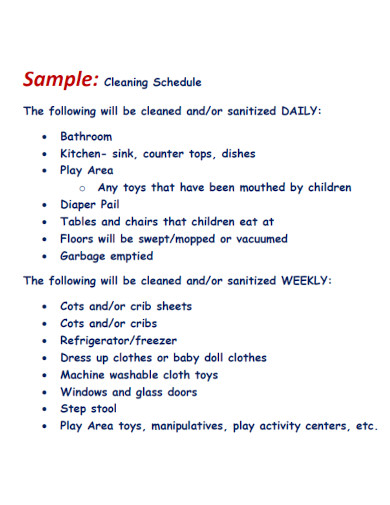
Cleaning Schedule
download now -
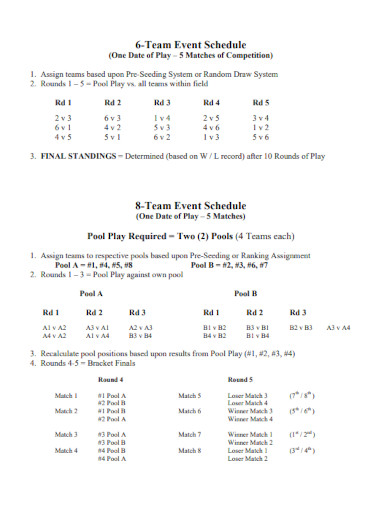
Event Schedule
download now -
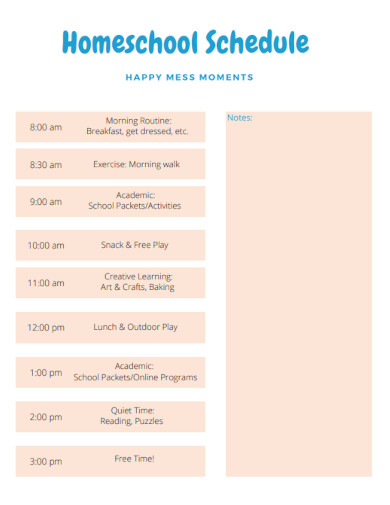
Homeschool Schedule
download now -
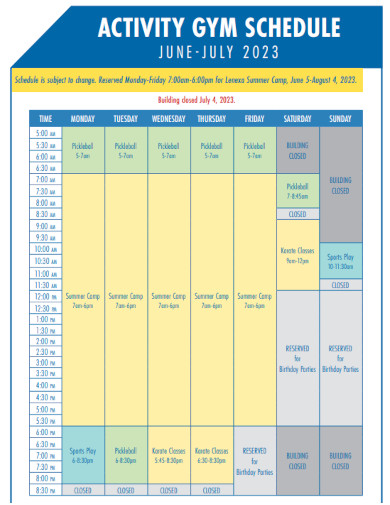
Activity Gym Schedule
download now -
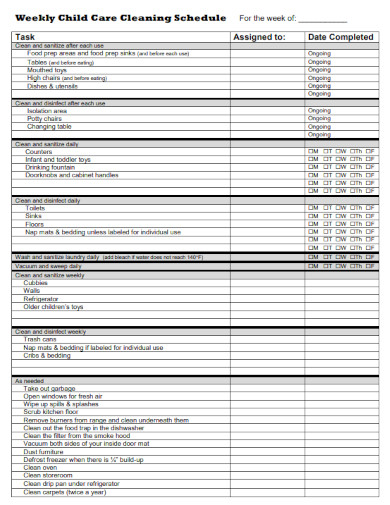
Child Care Cleaning Schedule
download now -
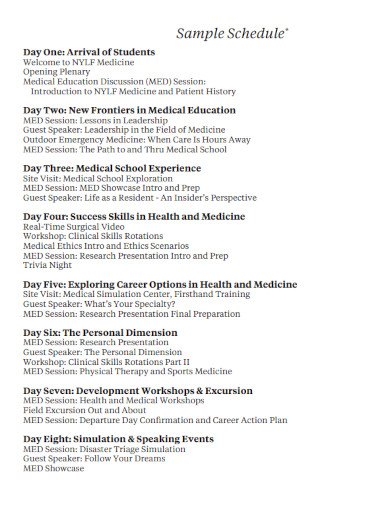
Sample Schedule
download now -

Kindergarten Sample Schedule
download now -
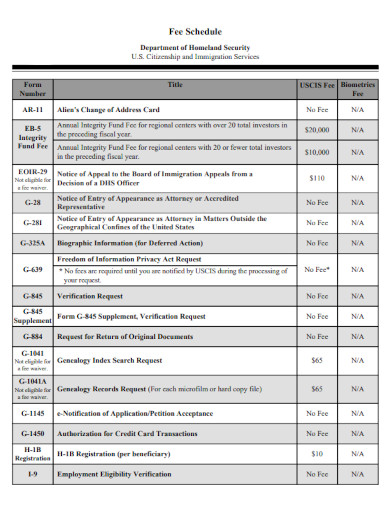
Fee Schedule
download now -
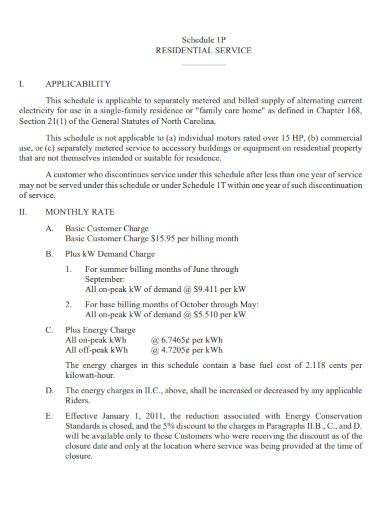
Electricity Company Schedule
download now -
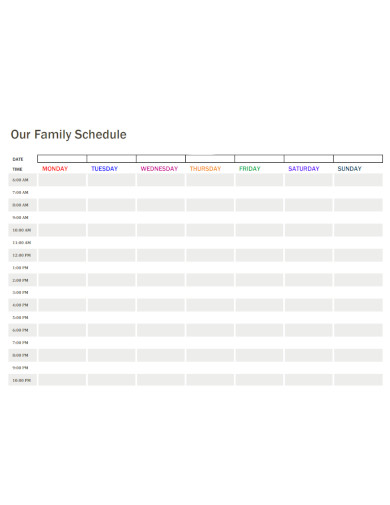
Family Schedule
download now -
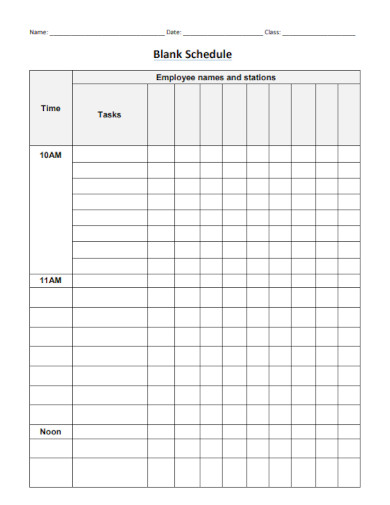
Blank Schedule
download now -
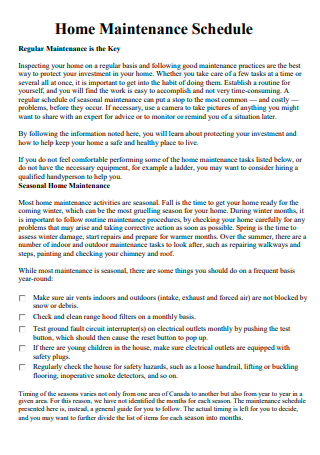
Home Maintenance Schedule
download now -
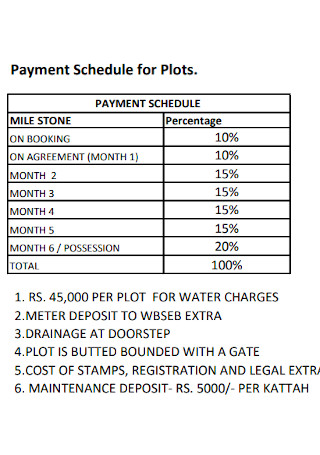
Payment Schedule for Plots
download now -
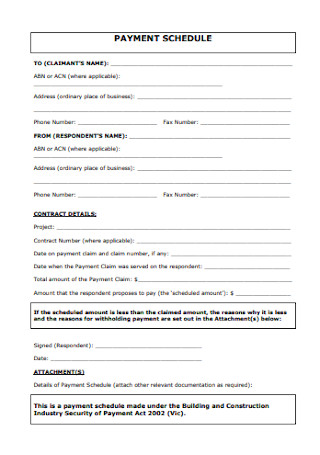
Basic Payment Schedule
download now -
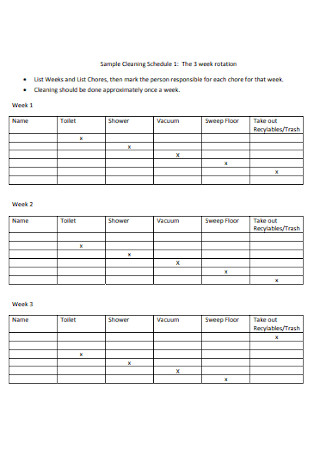
Cleaning Rotation Schedule
download now -
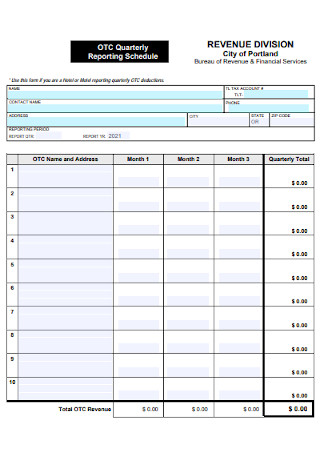
Quarterly Reporting Schedule
download now -
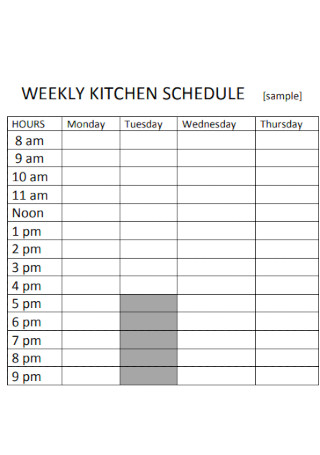
Weekly Kitchen Schedule
download now -

High School Daily Schedule
download now
What Is a Schedule?
As a fundamental time-management tool, a schedule or timetable consists of times when possible duties, events, or actions are intended to occur or a chronological sequence of events in which such things are designed to happen. Scheduling is creating a schedule, which involves deciding how to order tasks and allocate resources among various possible jobs. A scheduler is an individual responsible for creating a particular schedule. Creating and adhering to schedules is a primordial human practice. Some scenarios relate this type of planning to the acquisition of life skills. Schedules are required, or at least helpful, when individuals need to know when they must be at a specific location to receive a particular service or complete a set of objectives within a specified time frame.
Benefits of a Schedule
Even if you believe your job is monotonous and repetitive, a variety of duties throughout the day require your attention. But how can you give each task the attention they deserve? You advance by creating a schedule for your most essential responsibilities. Here are some advantages of organizing your duties with a schedule. This will not only ensure that you complete everything you need to, but it will also increase your productivity. Additionally, you will enjoy the following benefits.
Tips to Organize Your Schedule
Organizing your schedule may assist you in determining what you can realistically accomplish during your awake hours each day. Knowing what is on your plan can help you ensure enough time to complete essential or work-related tasks and enjoyable activities. Being organized may allow you to best prepare for the unexpected or achieve your objectives. An organized schedule helps you feel better prepared, more productive, and more efficient when completing daily tasks. Here are some suggestions for organizing your program.
1. Keep Essential Goods in One Location
Being prepared in every aspect of your life may help you organize your schedule better. When returning from work or an event, consider placing all your belongings outside the home in a single location. This can ensure that your purse, keys, watch, sunglasses, headphones, and electronic devices are prepared for your morning departure. This may help you save time when searching for misplaced products. The items you carry may determine the central space available to you. Consider a charging station near the entrance or an electrical receptacle.
2. Plan Ahead
Giving yourself time to plan could simplify sticking to your schedule, just like when making meals or setting aside time for a vacation. Give yourself around 15 minutes to jot down and review your plans for the following day before you sleep at night or leave the office for the day. Think about including both private and public activities and appointments. When getting ready at work, think about clearing your desk and storing any loose items you won’t need to reduce clutter. Think about grabbing things and placing them on your desk to get them quickly.
3. Organize Your Office Area
Like storing your outgoing items in a single location at home, a well-organized desk at work can help you save time as you progress through your schedule. Consider designating specific areas for all office supplies, files, literature, and other items you may need access to throughout the day. Determine where and how you will sit at your workstation to determine the contents of each shelf and drawer. Those who are right-handed, for instance, may place writing instruments on that side. Consider putting your most frequently used items in the upper compartments of your desk or on the desktop.
4. Acquire Time Management Abilities
Learn time management to avoid procrastination. Consider selecting a large or important task to complete first each morning, such as a task with a strict deadline or one that can be completed independently without collaboration. Completing an essential or time-consuming task early in the day may help you feel more productive. This may also teach you how to prioritize your responsibilities and give you the most time to complete critical tasks.
5. Segment Your Day
Consider dividing the day into segments to make duties more manageable. You may divide the day into two halves, morning and afternoon, with a lunch interlude. Depending on your occupation, you may split your day into smaller chunks, such as thirds or fourths divided by meeting agenda or phone calls. This may help you determine what you want to accomplish each day by a specific time, letting you stay on task and be more productive.
6. Make a To-Do List
Consider creating a daily to-do list to determine what you wish to accomplish. Prioritize your tasks in descending order, beginning with the most important or time-sensitive items and working your way down to those that can wait until tomorrow if necessary. You may include portions of longer, more involved endeavors on a daily to-do list.
How to Create a Daily Schedule
Establishing a prioritized daily schedule can help you maintain a healthy balance between your professional and personal lives. A daily schedule can help you achieve long-term objectives by consistently working toward them. Incorporating tasks into your routine and sustaining your workflow can help you successfully organize your schedule. Follow these steps to construct a productive daily schedule that meets your specific needs:
1. Document Everything
Begin by listing every personal and professional duty you wish to complete during a typical week. Try to generate ideas instead of editing or organizing. Include occasional tasks, such as changing the linens or mowing the lawn, and daily task checklists, such as preparing breakfast or doing the dishes.
2. Identify Priorities
Once you have compiled your list, examine it to determine your daily priorities. Consider using a highlighter to visually organize your desires and requirements into professional and personal categories. For instance, highlight daily work requirements, such as responding to emails or returning phone calls, in blue and secret desires, such as reading a book for leisure or meeting a friend for coffee, in green. Apply this to your entire list of duties.
3. Cluster Similar Duties
Determine whether similar duties can be grouped for increased efficiency. For instance, if you have “wash the dishes” and “wipe down surfaces” on your daily to-do list, consider doing them together or one right after the other because they require similar supplies and occur in the same home area. Additionally, categorizing the task reports can make it simpler to complete each item on the checklist.
4. Make a Weekly Chart
Produce, acquire, or print a weekly chart. Start filling it in with your daily and weekly work and personal demands. Determine where it makes sense to perform weekly tasks to keep your schedule as open as feasible. Consider adding a weekly task, such as mowing the lawn, if you have only four priority lists on Mondays, rather than doing it on Saturdays, when you have six priority tasks to complete.
5. Optimize Your Tasks
Examine your weekly schedule and identify areas or duties that can be simplified or optimized to save time. Consider a grocery delivery service or transferring the task to a weekday if, for instance, going to the grocery store on Sundays leaves you with insufficient time to manage other responsibilities. Do this for days that appear particularly packed with activities.
FAQs
What is the importance of a flexible structure?
If a building is flexible, it can adapt its performance in response to a change in conditions that have already been predetermined. The structural flexibility of structures influences the service life of existing buildings and the potential service life of newly constructed buildings.
What is a learning schedule?
A learning schedule outlines how a new subject or talent will be studied. It may include a timeline for completing various tasks and milestones and the methods and resources used to acquire the material.
How important is work schedule?
The work schedule can be designed to provide efficient and timely completion of the task list. It also enables the most important tasks to be completed during peak work hours, resulting in better and quicker work.
Scheduling is an efficient method for managing two valuable resources: time and people. Choose a scheduling system that optimizes shifts and teams by balancing burden and skill. In conclusion, scheduling enhances business productivity, time management, work-life balance, and employee satisfaction. Start planning and increase your productivity now!
